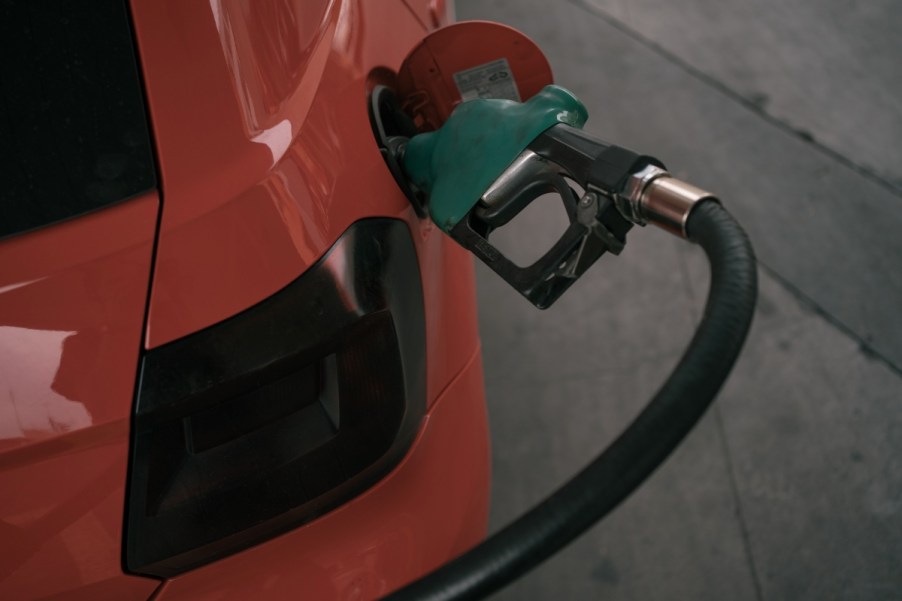
Car Companies Are Working on Synthetic Fuels, But Are They a Pollution Solution?
There is a lot of noise surrounding climate change and how it relates to cars. Of the proposed solutions, both electric vehicles and synthetic fuels are getting the most attention. While EVs are far and away the leader in reducing pollution, alternative fuels remain a strong option as well. But so-called ‘carbon neutral’ synthetic fuels may not be quite what they claim.
What are synthetic fuels?
Simply put, a synthetic fuel is fuel produced chemically, rather than organically. Instead of pumping crude oil out of the ground for refining, these fuels are created using a complex chemical process that involves gathering both carbon and hydrogen from alternative sources. For most synthetic fuel production today, that means using recaptured carbon from the air (though not always) and water.
How does carbon capturing work?

No matter what, carbon capturing is a big key to reversing climate change and creating a more sustainable future for the planet. And by using this captured carbon to create fuel, driving, and flying can be considered carbon neutral. However, the process of carbon capture requires a great deal of power itself, and this is where things start to get sticky for the whole ‘carbon neutral’ claim.
Deriving hydrogen from water
The other half of the hydrocarbon equation is, you guessed it – hydrogen. But capturing hydrogen from the air isn’t a simple process, so synthetic fuels are often made from water. In this process, the water goes through a process called electrolysis. In short, a strong electrical current zaps water into its separate elements, and the hydrogen is then separated out. Oxygen is then sent back into the atmosphere, which is, without doubt, good for the environment.
But much like carbon capturing, electrolysis takes massive amounts of energy. And considering the fuel demands we currently have, keeping up with synthetic fuel production is something of a non-starter.
Creating synthetic gasoline from air and water
This already energy-intensive process continues after extracting hydrogen and carbon from water and air. To make gasoline that will work in today’s cars requires an additional refining step. The first phase is methanol, which refines down to gasoline via another lengthy process. We covered the complete process earlier this year, following Porsche’s process at a synthetic fuel plant in Chile.
Why synthetic fuels are considered carbon neutral
With all of this in mind, it begs the question – why are synthetic fuels carbon neutral? The answer is simple – tailpipe emissions. Much like EVs, much of the environmental impact of synthetic fuels relates only to what comes out of the exhaust.
And while synthetic fuels do, in fact, emit carbon into the atmosphere, it is carbon that was already there. As such, it isn’t technically adding any new carbon to the environment, thus the carbon-neutral label.
But overall, the issue is much stickier than that.
EVs and synthetic fuels have the same problem

Much like electric vehicle batteries, synthetic fuels are difficult to make. They both require massive amounts of energy to produce, offsetting any tailpipe emission reductions as a result. However, unlike EVs, synthetic fuels have no real break-over point at which they become a good environmental choice.
Because EVs have zero tailpipe emissions, there is a formula to measure at what point an EV is better for the environment than a gas-powered car. Synthetic fuels, on the other hand, do still emit carbon dioxide, so the added energy cost of production is never truly offset.
While it’s true that, at the very least, the fuels themselves don’t add any new carbon to the atmosphere, unless the production is run on nuclear, hydro, or wind energy, it’s hard to say that they are truly carbon neutral.
In a world where meeting current energy demands, both from green and traditional energy sources, is increasingly challenging, adding another energy-intensive manufacturing process isn’t truly a solution to our pollution problems.
The work done on synthetic fuels is impressive, but it isn’t ready for mainstream adoption. From Hazel Southwell via Ars Technica, “Capturing carbon, only to then subject it to another energy-intensive process and ultimately release it right back into the air, doesn’t make sense.”
And she’s right. When battery-powered vehicles offer 80% energy efficiency, synthetic fuels simply aren’t the answer. They take too much energy to make, and even the most efficient gas-burning car is already running at a 40% rate of efficiency with today’s simpler fossil fuels.
Add the 60-70% efficiency of the synthetic fuel process and synthetic fuels are actually harder on the planet than both traditional fossil fuels and EVs.
Is there a way to avoid an all-electric vehicle future?
With those inefficiencies in mind, it may seem like EVs are the only option for a sustainable future. And make no mistake, they’re a big part of how we move forward. But manufacturers are also toying with hydrogen-powered vehicles as well. And while these have the same issue of electrolysis production, it is a much simpler, two-step process versus the convoluted nature of creating synthetic gasoline.
The average energy efficiency of hydrogen is 60%, which isn’t great, but is much better than synthetic gasoline. And because the only emission is water, it is a more sustainable option than any carbon-emitting fuel, synthetic or otherwise.
Automakers including Toyota, Honda, Hyundai, Porsche, BMW, and Mercedes are all working on some version of the technology. Drivers in California and New Jersey could even buy a hydrogen-powered Toyota Mirai as recently as 2020. Much like EVs, hydrogen infrastructure is a big challenge. But as a mix of old-school experience and low environmental impact, Hydrogen is leading the way.




